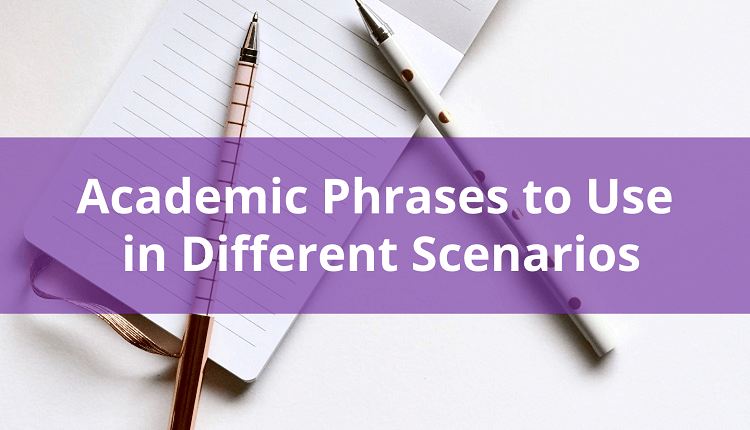In the first article of this three-part series, we shed light on how to use academic phrases in different scenarios. We also mentioned how authors benefit from using an AI-powered tool such as Trinka, a writing assistant designed for academic and technical writing. It is trained on the best academic papers from all subject areas to suggest the most relevant phrases for academic writing.
In this part, we are sharing some more pointers for using academic phrases effectively.
Phrases to Show Emphasis
Certain phrases are used to draw the readers’ attention to what the writer identifies as significant. Nonetheless, speculative phrases are largely discouraged in scientific reports.
- It must be stressed that the Landau gauge is crucial for the new rules.
- It should be emphasized that this conclusion is only applicable if the numerous assumptions about the boundary are validated.
Phrases to Conclude the Paper
Numerous research journals require writers to submit a summary of their study objective, often in a separate section called “Conclusions” or “Summary.”
- This paper reviewed the nature of children’s physical activity patterns and how the unique nature of children can impact the assessment of physical activity.
- In this paper, we discussed some issues related to entanglement in the system of indistinguishable particles.
- In this report, a novel purification method that includes the hydrothermal treatment has been presented.
Phrases to Signal Caution
Certain phrases let writers distance themselves from the claims of other writers and signal caution when presenting their own claims. But this is more widespread in fields that depend on theory and statistics to argue for claims, e.g., medicine, biology, physics. In fields such as engineering, these phrases are the exception rather than the rule.
- To the best of the authors’ knowledge, this is the first reported case of a neoplasm induced by radiosurgery for an AVM.
- Only the most prolific interactors tend to evolve slowly.
“Weaker” verbs are generally used to introduce possibility:
- suggest vs. demonstrate
- contribute to vs. cause
Phrases to Strengthen the Degree of Argument
Unlike phrases in point 7, which signal caution, certain phrases strengthen the writer’s degree of commitment to a particular viewpoint. For instance,
- It is clear that the acceptance rate is impacted by the choices of ranges for the molecular translations.
- These outcomes clearly show that even in the presence of an overwhelming viral infection of the immune system, CD8+ CTL can stay active for lengthy periods.
Phrases to Express the Writer’s Attitude
Writers can also express their attitude to their own data and claims, as well as those of others, through the use of different adverbs. For instance:
- Part of the reason is that, perhaps not surprisingly, the modeling of financial innovation and deregulation proved to be quite an arduous task.
- Unfortunately, we are not able to provide accessible alternative text for this.
The final post of this three-part series will deal with phrases used to compare results and those used to cite work by other authors.

